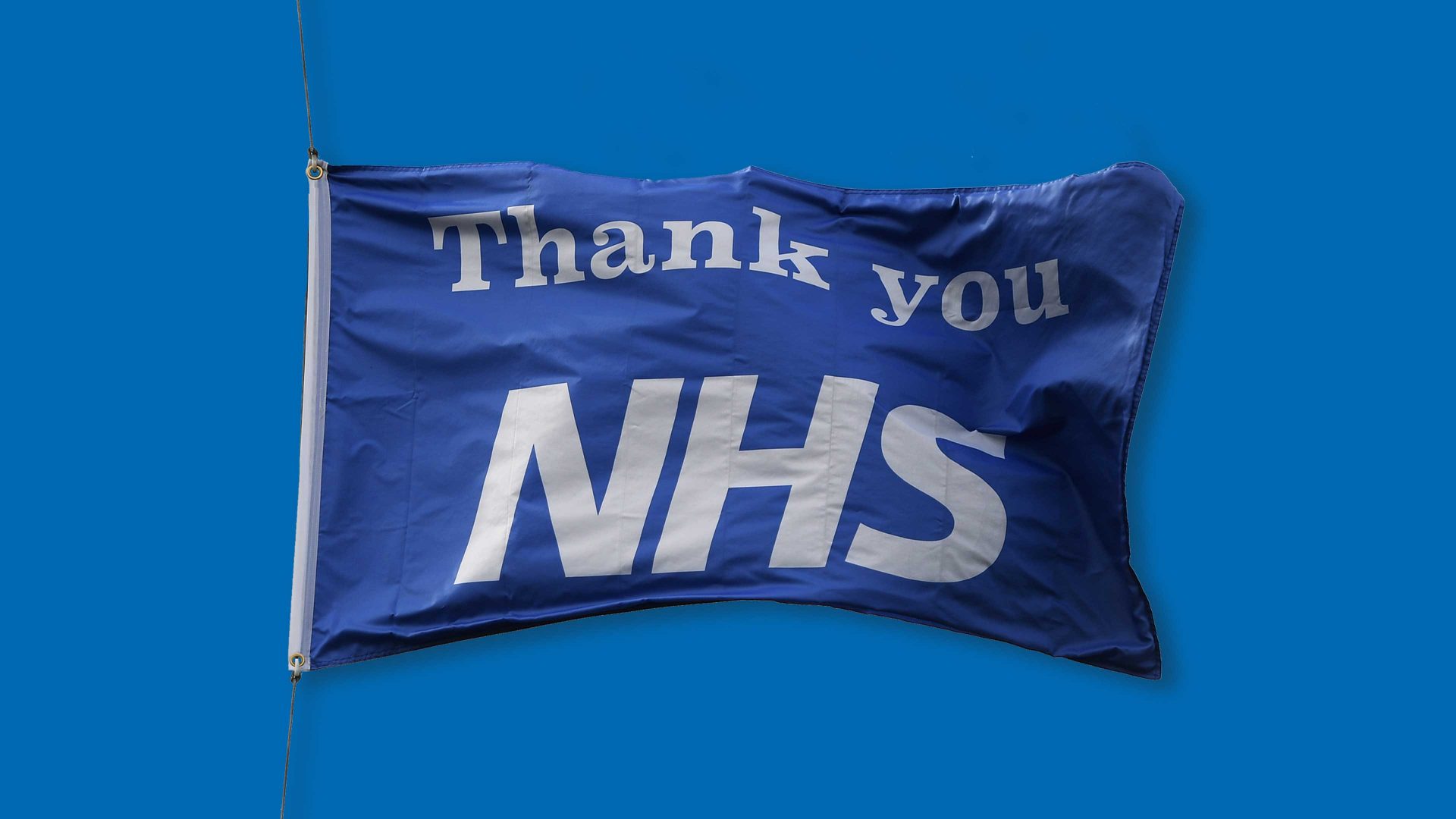The NHS comes in for so much flak, from the media, from ministers and MPs, from right-wing think wanks who want it to be owned by US corporations, and, because of the noise created by all of the above, from far too many people as well.
Of course, patients are entitled to complain if they get bad treatment, but I find it sad that in virtually every NHS building you enter these days, there are signs up urging people to curb the abuse of professionals trying to help them in difficult circumstances.
Yes, there will be bad doctors amid the good, ditto for nurses. And management systems that are not as effective as they should be.
But when I see NHS satisfaction ratings lower than ever after 14 Tory years – following 13 years of a Labour government that left office with them higher than ever – I have no doubt what the main reason for that dissatisfaction is… and it is not the staff, or the fundamentals.
A few weeks ago, I received a letter saying that as a 66-year-old, I was covered by the NHS Bowel Cancer Screening Programme for men aged 60-74. This started in England in 2006, achieved full roll-out in England and Wales in 2010 and, to be fair to the Tories, (just this once) it has continued to expand.
There was a time I had ulcerative colitis, so I have had several colonoscopies in the past, and memories of the laxative preparation are enough to put you off medical treatment for life. So I can’t say I rushed to use the stool sample kit that was included. Heading to Singapore, I left it by my bedside, half-promising myself I would take care of it when I got back.
However, not long afterwards I received text messages reminding me I had not yet returned a sample. So, after two or three of those, I did. A few days later – under a week – I got a letter saying someone would be calling me, because the sample suggested there was reason to follow up.
A very nice woman called Dawn Forsythe duly called, while I was in France, explaining to me in detail what the colonoscopy entailed and why they considered it advisable. She said it was up to me if I wanted to do it – I did – and so could we discuss dates to go into University College Hospital, first for blood tests, then the colonoscopy.
Of course, I said, assuming it would be months away. “How are you fixed the week after next?” she said.
So, last Wednesday night was laxative night, Thursday morning laxative morning, and shortly after 9am, I found myself putting on a hospital gown, being mildly sedated, and having a man called Jonathan Fawkes lead a camera, and various tiny pieces of equipment, on a tour of my bowel, helped by four medical staff, who could not have been kinder or more inspiring of confidence.
Four polyps, two fairly large, two small, were removed by the aforementioned equipment.
There were, however, complications, almost certainly caused by my wimpishness, and my naturally low pulse rate. The former appears to have helped the latter fall rather alarmingly, along with my blood pressure, and after a while, they decided that with all the big polyps successfully snared, they could cut their losses and stop.
However, in the recovery room my pulse fell further, and when it dipped below 30, a nurse pressed a button and before I knew it I had a “crash team” made up of more than a dozen doctors and nurses in attendance. When one of them said “are you still with me?”, like in the movies, I thought “this must be getting serious”.
Happily, it wasn’t, and within an hour or so I was broadly back to my fighting best, and the doctors were advising me about a couple of follow-up procedures, for the bowel, and, purely as a precaution, for the heart, appointments for which were arranged the same day.
Heaven knows how many people were involved in the whole process, but from the moment I got that letter, to the moment I arrived home last Thursday, every little thing they did, as Sting might put it, was magic. The NHS faces many challenges, and would benefit from plenty of reform as well as investment. But it remains one of the best things about Britain, and we should never forget it.

One of the nurses suggested it really ought to be called the “Bowel Polyp Screening Programme,” as it was usually polyps they found, not cancer. But what it shows is the benefit of a preventative approach to healthcare, given the ones removed were likely to develop into something far worse over time.
Nowhere would we benefit more from a preventative attitude and policies than in the field of mental health. That is why Rishi Sunak’s recent speech on welfare reform, performative cruelty dressed up as compassionate Conservatism, was so depressing.
The aim seemed to be to cast doubt on the reality of many people’s mental illness, rather than set out a strategy for how a preventative approach, covering education and support in schools, proper addiction services, enlightened prisons and probation, and leadership on openness and understanding, could improve people’s lives and over time save money and make the country happier and more productive.
As for “where would the initial investment come from?” – well, seemingly he suddenly found £75bn for defence, to be paid for by, er, sacking a few civil servants.
What? Then there are 150 Rwanda judges he is lining up, while the rest of the courts system is collapsing, another Sunak Magic Moneytree plan. It’s like he is holed up in No 10, playing a political version of Fantasy Football.
The best preventative health measure on offer right now is a vote to ensure we prevent another Tory government for a very long time, preferably ad infinitum.
The doctor who was asking me if I was still with him probably assumed I wasn’t when I started mumbling that “this once happened to Seb Coe, you know!” But it did, and as part of my lifelong fantasising about being a top athlete, I am somewhat chuffed to have had the Coe treatment on account of a low pulse rate.
When Coe, one of our greatest ever runners, was working for ex-Tory leader William Hague, he was taken ill on a visit to Germany. Kept in for checks, the doctors went into cardiac arrest overdrive when his pulse rate while asleep fell into the 20s.
Clearly alarmed at the thought that the legendary runner might die in their hospital, they began to pump away at his chest, thereby waking him and allowing him to explain that it really wasn’t anything to worry about – his resting pulse rate used to be that low all the time.
Lots of people reading this are subscribers who joined the New European family on the back of an offer of my last book, But What Can I Do? I have now taken some of its central themes, above all how to get more young people involved and engaged in politics, in two new books out in August. Why Politics Matters is aimed at primary school pupils; Alastair Campbell Talks Politics is for teenagers and young adults.
However (NB management!) I reckon there could be an adult market too… including MPs, like the Labour man elected in 2017 who texted me: “I see you’re writing books for kids explaining how politics and parliament work. Can you send them to me? I haven’t got a fucking clue how this place works.”




